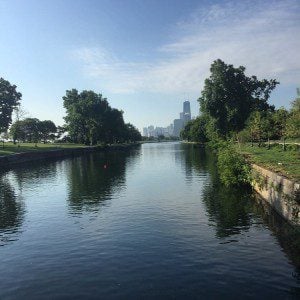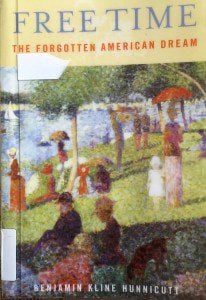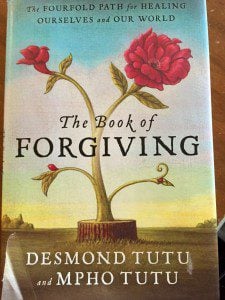My fellow Patheos blogger Tony Jones is asking the important question “Why pray?” as research for a book he is writing on prayer. You can follow the responses through the Twitter hashtag #WhyPray or follow the Storify feed. I’ve collected my top ten responses below:
- Singer-songwriter David Wilcox’ CD Out Beyond Ideas is an incredible collection of music based on Daniel Ladinsky’s equally good book Love Poems from God: Twelve Sacred Voices from the East and West.” Why pray? To experience this love for yourself.
- Martin Laird’s A Sunlit Absence: Silence, Awareness, and Contemplation is a small, 200-page gem of a book on prayer that is a recent companion piece to his previous (and also excellent) book Into the Silent Land: A Guide to the Christian Practice of Contemplation.
- If you do pray, as you mature in the practice, you will eventually find yourself in some form of a “Dark Night of the Soul,” at which point Thomas Green’s two books When the Well Runs Dry: Prayer Beyond the Beginnings and Drinking From A Dry Well are invaluable.
- Richard Rohr is one of our greatest living wisdom teachers. His Everything Belongs: The Gift of Contemplative Prayer is a contemporary spiritual classic. Everything Rohr has written is great, but perhaps also see, in particular, his more recent book The Naked Now: Learning to See as the Mystics See. And in a world in which almost everyone’s inbox is too full, I nevertheless cannot recommend highly enough his free daily e-mail meditations.
- To throw a cross-cultural perspective into the mix, I am a huge fan of Paul Knitter’s work on religious pluralism in general, and of his Without Buddha I Could Not Be A Christian in particular. Knitter “crosses over” from Buddhist practices to Christian practices (including meditation and prayer), illuminating each tradition more fully from the perspective of the “other.” This book is an deeply personal and highly significant contribution to the theology of “religious hybridity” and “dual belonging,” which will likely be increasingly common in common years: religious adherents rejecting an “either/or” dualism, refusing to choose only one path, and identifying as “both” — for example, Christian and Buddhist, Jewish and Christian, Muslim and Hindu.
- The inspiration for the contemporary Centering Prayer movement is the insight from the anonymous author of the fourteenth-century text The Cloud of Unknowing that, “The heart of contemplative prayer is a naked intent towards God.”
- Cynthia Bourgeault, another vital contemporary wisdom teacher, has updated The Cloud‘s teaching for the twenty-first century in her Centering Prayer and Inner Awakening.
- William James (1842-1910) in his The Varieties of Religious Experience writes powerfully about why we need to pray (to cultivate firsthand religious experience for ourselves and to test religious dogma in the crucible of our own experience) instead of merely trusting other people’s second-hand talk about God: “Churches, when once established, live at secondhand upon tradition; but the founders of every church owed their power originally to the fact of their direct personal communion with the divine” (35).
- Mother Theresa ofCalcutta was once asked by a reporter in what is perhaps an apocryphal story, “How do you pray.” She said, “Mostly I listen.” The reporter then asked, “What does God say?” to which she replied, “Mostly God listens.” Seeing his perplexed face she said, “If this doesn’t make sense to you, you may well never understand unless you try it for yourself.”
- Henri Nouwen, another of those prolific authors, who never seems to have written an uninteresting word, penned one of my favorite quotes on prayer in his book Reaching Out: The Three Movements of the Spiritual Life.
Not too long ago a priest told me that he canceled his subscription to The New York Times because he felt that the endless stories about war, crime, power games and political manipulation only disturbed his mind and heart, and prevented him from meditation and prayer. That is a sad story because it suggests that only by denying the world can you live in it, that only by surrounding yourself by an artificial, self-induced quietude can you live a spiritual life. A real spiritual life does exactly the opposite: it makes us so alert and aware of the world around us, that all that is and happens becomes part of our contemplation and meditation and invites us to a free and fearless response.
Why do you pray?
[Update: Two bonus reasons for #WhyPray from Richard Rohr: “”Prayer is sitting in the silence until it silences us. Prayer is choosing gratitude until we are grateful.”]
For Further Study
- See my post on 25 Books Every Christian Should Read.
The Rev. Carl Gregg is a trained spiritual director, a D.Min. candidate, and the pastor of Broadview Church in Chesapeake Beach, Maryland. Follow him on Facebook (facebook.com/carlgregg) andTwitter (@carlgregg).
















